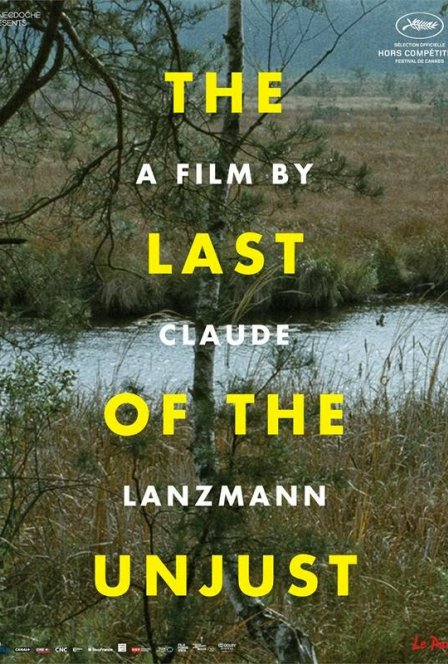“Cinder as the house of being…” —Jacques Derrida
Ten “Theses” on Lanzmann’s The Last of the Unjust
01. Everything is filled with secrets. Every train station. Every fortification. Every field. The truth, often, is clandestine. No pan is slow enough to capture it, and no mic is close enough to listen in.
02. Lanzmann tells us: in this field upon which grass grows was the site of a massacre; upon this platform where commuters arrive and depart was the site of mass deportations; within this man, Benjamin Murmelstein, is the cunning of a survivor…
02.a. What was Murmelstein’s excuse? He sought “adventure.”
03. Still, what moral judgments do you even make about those who survive in a system that demands collaboration with the enemy? Furthermore, what truth do such individuals tell about the dead? Where are lines drawn? What are lines?
04. We all acquiesce in various, significant ways. There are few choices that we make on a daily basis that are free of such collaborations. So how we even begin to judge?
04.a. Murmelstein, for his part, was acquitted by the Czech government. If you believe him, he’s a buffoon, a brilliant idiot. Architect of emigration, of deportation, but for the right reasons. “I taught [Eichmann] all he knew about emigration.” Likewise, about Hebrew.
04.b. That, by the way, is what Hannah Arendt meant in large part by “the banality of evil,” with special emphasis on banality. It is, curiously, a term that Murmelstein did not believe belonged to Eichmann. Go figure.
05. I think we are too hasty, however, in distinguishing condemnation from survival. The law allows for both. All an execution does is shut someone up. Which makes it all the more chilling that Murmelstein feels, like Scheherazade, he is condemned to talk.
05.a. I think Murmelstein would’ve made an excellent character in a play by Beckett.
06. As it stands, I don’t know what to make of Murmelstein. I suspect, like most of us, he’s a little bit of everything: a magnanimous, wily asshole who is capable of making complicated choices that work in the service of his interest as well as the interest of others. He is a mediocre leader that was subject to circumstance.
06.a. Obviously the fact of death camps complicates matters beyond words.
06.b. But we’re stupid enough to ask, “What did he know about Auschwitz?” Okay, then: what do you know? All of this functions fine so long as we can deflect blame.
07. After three and a half hours, I wonder what Lanzmann meant by The Last of the Unjust. It’s enough that it remains as a character study; it’s enough that it ends in an embrace — that is, of both Murmelstein, and of the boring remains of Theresienstadt.
08. There is no question — from Eichmann or from Murmelstein — that Theresienstadt was a lie. The only question — from Eichmann and from Murmelstein — was how best to utilize the fact of the lie. For both, it was a question of manipulating visibility. In this, Lanzmann presents a perfect balance.
09. Without sentimentality, Lanzmann documents what remains.
10. I suspect truth, beyond definition, is like particles of dust, in the air, catching light at dusk. Or, perhaps, it is more like a corpse. Never mind which; it’s out of sight before you think to snatch it.

